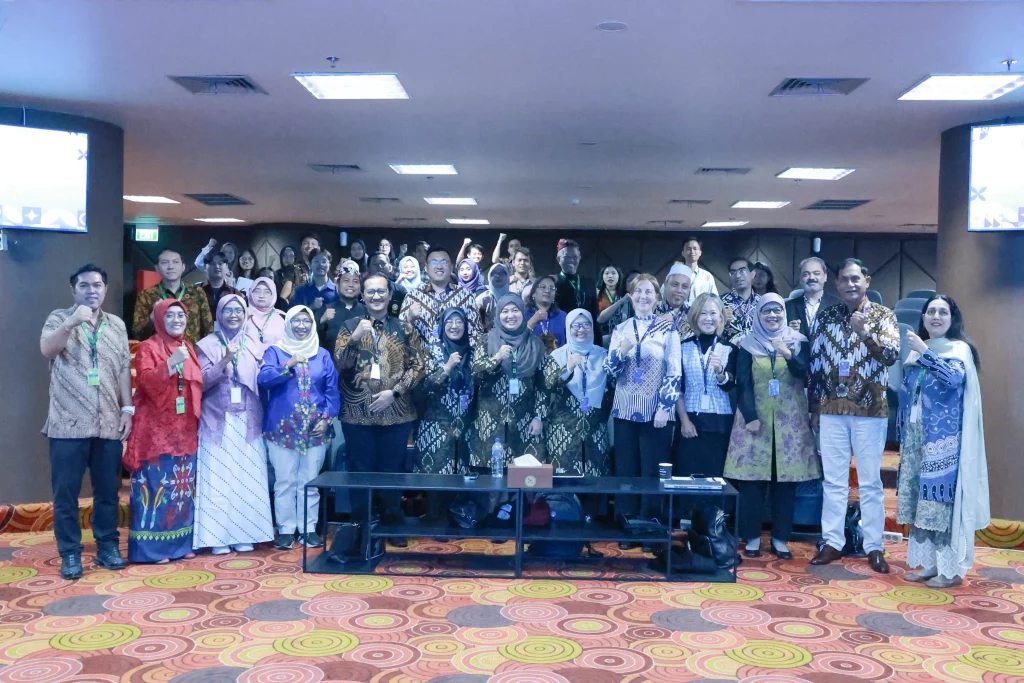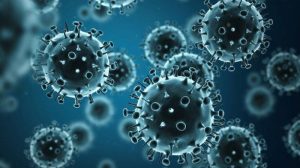UNAIR NEWS – Universitas Airlangga’s (UNAIR) World University Association of Community Development (WUACD) joined forces with the UK’s World Association for Sustainable Development (WASD) to host an International Joint Conference titled “Implementation of Artificial Intelligence in Digital Health to Support Sustainable Development.” The conference, held on Monday, October 28, 2024, took place at Majapahit Hall on the 5th floor of the ASEEC Building, Dharmawangsa-B Campus, UNAIR.
Professor (HCUA) Dr. Carina Citra Dewi Joe, an esteemed UNAIR faculty member, presented the keynote address via Zoom, sharing insights on the transformative impact of Artificial Intelligence (AI) in healthcare. Her presentation, titled “AI-Driven Innovations in Biotechnology: Transforming Healthcare,” delved into groundbreaking AI technologies such as AlphaProteo and AlphaFold, which are driving a new era in bio-AI research.
In her remarks, Professor Joe emphasized how AlphaProteo and AlphaFold are paving the way for significant breakthroughs in biological research, with promising implications for future healthcare. “AI’s applications extend well beyond biology,” she stated. “It holds substantial potential to shape the future of healthcare.”
Role of AlphaFold
Professor Joe focused on AlphaFold, a cutting-edge AI technology developed by DeepMind, which is advancing the prediction of protein structures. She highlighted AlphaFold’s considerable contributions to structural and protein biology.
In its initial release in 2018, AlphaFold employed statistical methods and local energy simulations to analyze and predict protein sequences. “AlphaFold’s accomplishments were recognized when it ranked highest at the 13th Critical Assessment of Protein Structure Prediction competition (CASP13),” she shared.
By 2020, AlphaFold’s second version represented a major advancement, achieving near-atomic precision for multiple proteins. The model’s innovative approach utilized multiple sequence alignment (MSA) and attention mechanisms to model amino acid interactions.
The latest version, AlphaFold 3, incorporates a diffusion model for predicting and refining the structures of other biomolecules like DNA, RNA, and ligands, expediting drug discovery by forecasting interactions between proteins and pharmaceuticals. “AlphaFold 3 is expected to mark another pivotal leap forward,” she noted.
AlphaProteo: AI-Powered Protein Engineering Model
Professor Joe also introduced AlphaProteo, a specialized AI model from Google DeepMind, designed to support protein engineering and accelerate drug discovery. Building on AlphaFold’s success, AlphaProteo is aimed at advancing protein binder design, facilitating drug development, and addressing complex biological targets.
“AlphaProteo is designed using deep learning techniques to predict protein-protein interactions. Its features include the ability to bind to proteins relevant for drug targets, quickly predict protein structures and interactions, and utilize large-scale data,” explained Professor Carina, who has also contributed significantly to COVID-19 vaccine research.
Looking ahead, AlphaProteo is expected to foster stronger collaborations across the scientific community, bridging academia and industry to tackle emerging biological challenges. This AI model’s capabilities are projected to grow, improving binding accuracy for difficult targets by incorporating more biological data to enhance prediction accuracy.
Author: Febriana Putri Nur Aziizah
Editor : Edwin Fatahuddin









